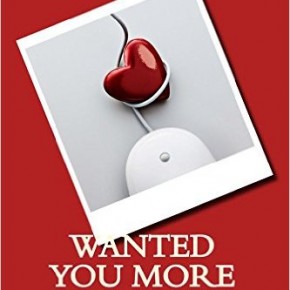Poets of the Fall: Belated Interview and Self-Discovery

Poets of the Fall in a 2008 live performance By wlodi – http://www.flickr.com/photos/wlodi/2447716470/sizes/o/, CC BY-SA 2.0, https://commons.wikimedia.org/w/index.php?curid=8938315
I first listened to the Finnish band “Poets of the Fall” in 2006. I was just starting college and they had just released “Carnival of Rust”; their second album. The first song that I listened to was “King of Fools”. I was awe-struck. It felt like I’ve been chosen to guard an ancient god that only whispered its secrets to me.
The guitar solo was great. The vocals were raw and emotional. Every single aspect of the song suddenly made sense. To a lonely, angry teenager, “Carnival of Rust” wasn’t just an album, but more of a way to adapt to the 2000s while carrying a hormonal hurricane deep inside you. Mark Saaresto’s –lead vocal- voice was more of a Jiminy Cricket to the wild, troubled writer who lived within me.
As he gently whispered lyrics from their song “Illusion and Dream”:
Hear them sing their songs off key
N’ nod like they agree
Buying the need to be discreet
Poof, my weariness would magically disappear. I would find courage and strength within to go on.
Okay, first things first.
Proper introduction: These guys are technically salt of the earth. Singer Marko Saaresto, guitarist Olli Tukiainen and keyboardist Markus “Captain” Kaarlonen started from scratch throwing everything away to seek the yellow brick road to art. Their songs tackled various subjects from life to sex, death to joy, and despair to empowerment. Their most recent album “Jealous Gods” reached the #1 spot on the Finnish album chart and the #1 spot in my heart as well. A collection of instrumental versions of five of the band’s songs will be released February 16th in an album under the title “Instrumental Collection Vol.1”.
They say every critic is a failed artist. That’s true to a point. I’ve always dreamed of being a rock star. As I juggled failed auditions to be a female lead vocal from one contraband to the other, I realized that writing about music could be easier than actually pursuing a musical career.
I had the privilege of representing Synchronized Chaos magazine in interviewing the “Old Gods of Asgard” via email and the result was a sincere and thought-provoking insight into the kitchen where the Poets shed their skin and become dragons, monsters, demigods and superheroes. One of the best things about “Poets of the Fall” is that their darkest melody never gives in to despair. Poets of the Fall’s lead vocalist Marko Saaresto described the musical process as an “inner need to write music” or else it would be “a short-lived love affair”.
Isn’t that just spectacular?




